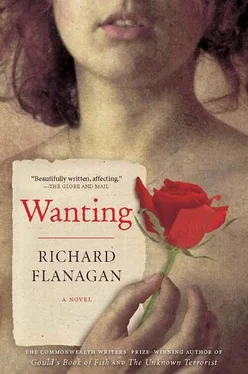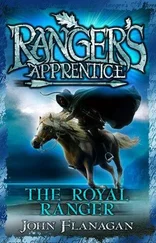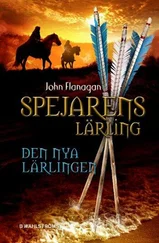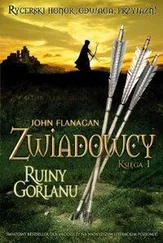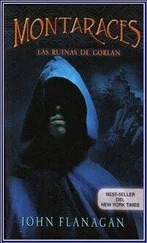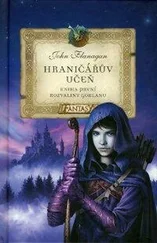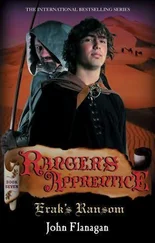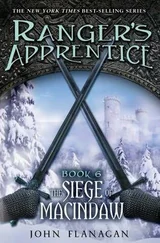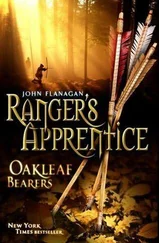‘Who are the Jews?’
‘The people of God, sir.’
If Mathinna wondered what sinful desires might be, or why the people of God might wish to kill the child of God, or if she saw it as obvious, having grown up ruled by the children of God, it was impossible to know, for having completed her task to the captain’s satisfaction, she burst into chatter.
‘And sir, sir, Napoleon he good fella, he teach me count to seven, teach me good, he know that first fella and all and the fella who made mountain and tree and stars. Yes, sir, he know. Jesus he bleed like a blackfella.’
‘Who taught you Shakespeare?’ asked the captain, suddenly suspicious.
‘Napoleon,’ said the child, who knew nothing of anything called Shakespeare.
Mathinna did not arrive in Hobart Town as she had intended to leave Flinders Island: her slight body clad in the skin of a white kangaroo hunted by her father. When the child burst into tears at the prospect of leaving her people, the Protector told her it was impossible to arrive at Government House dressed as a savage, but he relented on the matter of her favourite companion, a ringtailed albino possum she had tamed. It ran round her shoulders, nuzzled inside her grubby shift, and frequently dropped round turds like lead balls from a shot tower.
He let her keep the animal not out of sentimentality, but for fear that she might do something untoward if she were denied at least one small comfort. Of the children of Ham that had not perished, she was the brightest: high-spirited, admittedly, but the most advanced and, recalling her composure in the wake of her father’s death, perhaps the one with the greatest possibility of redemption.
But he took several months agreeing to the Franklins’ request, citing weather and the child’s health, and even advancing contrived pedagogical arguments. The real reason for the delay was that the child went missing every time she was about to be shipped out. And deep inside, Robinson grew oddly troubled, and it somehow made him feel a little better about himself when she was not able to be found. For there was about Sir John something that Robinson, ever a keen student and petitioner of power, could not quite put into words. He turned to prayer and Scripture, in which he found not answers but the evasion of transcendence.
At the point his own prevarications ran too thin to be sustained, Mathinna intensified her own campaign to stay by absconding with two native women to a sealers’ colony on Gun Carriage Island. If the Protector was loath to part with that for which the Franklins asked, if he was failing to find Mathinna, he was nevertheless succeeding in persuading himself that he would hardly be abandoning the child to the scum of the penal colony. Rather, he told himself, it was to the very finest flowers of England, disciplined in habit, religious in thought, scientific in outlook—a woman who seemed to be the worthy consort of a man celebrated as one of the greatest names in the annals of heroic endurance, and that man himself. And their selfless goal? To raise the savage child to the level of a civilised Englishwoman. How could he deny anyone such opportunity?
Finally he had locked Mathinna in a room in his own house for a week, confiscated her possum and refused to give it back until she was embarked on a small sealing sloop, the Cormorant . He gave her some ship’s biscuits as a parting gift, but he had not stayed to farewell her, instead returning to his house to read Scripture until dusk fell and the boat was lost to sight.
The Cormorant had fallen so far behind schedule that the captain offloaded his cargo for Hobart at a small inlet at the head of the Derwent estuary. There he came to an arrangement with a silver-haired old sawyer carting firewood. At first, the sawyer hadn’t wanted anything to do with the black child. His brother, a convict shepherd, had been speared to death by blacks in a raid on his outstation during the Black War. But in exchange for some sealskins—the captain wished to hurry back to the islands to collect more—the sawyer finally agreed to take Mathinna through to Hobart Town.
The sawyer looked down at the small child and resolved she would be no more to him than a bag of chaff to be delivered. Though only a blue tattoo of her name remained on his shoulder, he had once had a daughter. He noticed a lump in the girl’s smock, and dangling out below a button at waist level was a tail. He leant down, tugged the tail as he might a door pull, and was surprised when two large and sleepy pink eyes and a damp nose poked out.
With hands that were at once very large and very gentle, that seemed like a sea eagle’s nest made of gnarled eucalypt branches, the sawyer picked up Mathinna. Holding the small weight and trust of the child in his grasp, he began to fear that hate was beyond him.
She looked up at the sawyer’s face. One of his eyes was dead and milky, and his hair reminded her of a mat of bleached she-oak needles. As he slowly swung her through the air, she felt safe with the old man. He sat her down on the seat board of his cart, and then, in spite of his promise to himself, he found a dirty rug in the tray and spread it over her knees.
‘Garney,’ he said.
He noticed her bare feet poking out from the rug’s ragged bottom and, reaching down, he tweaked her big toe. He smiled.
‘Garney Walch.’
The child had seen nothing like the town, a vast confusion of white men in many colours, and large buildings and mud and shit and horses—so many horses! And the whole effect, as she rode by the new warehouses and the older grog shops and slum cottages, as they drove past pigs and cows roaming free in the streets, men in yellow and black clothes chained like oxen, men in red clothes leaning on muskets, and finally up a hill to Government House, was one of overwhelming excitement.
A few people here and there stopped and pointed at her, shaking their heads as though they had seen a ghost.
‘Why, Gunna?’ she asked the sawyer, unable to pronounce his name.
‘Well,’ said Garney Walch, who didn’t have an answer he wanted to tell the child, ‘because…because you’re going to be their new princess, that’s why.’
When they arrived at her new home, they were directed around the back to a bustling series of outbuildings that served as kitchen, abattoir, laundry, stables, piggery and servants’ quarters to the large house.
‘Don’t leave me,’ she said, as he picked her up off the seat board.
‘These are good people,’ he said. But when he went to put her down, she dug her hands and feet into him and the possum ran round the back of his neck. ‘The best people,’ he said.
He didn’t believe it. Nor did she. She clung to him ever harder.
‘Don’t go,’ she said. Her bony frame was that of a terrified bird, pushing in and out against his old body. And though he wanted to hold and soothe what had nothing to do with him, he had to tear her and the possum off him and give them both to a small woman with a birthmark over fully half her face, soft and strange as an overripe apricot.
Garney Walch left quickly, cursing himself for feeling as bad as he did, his soul painfully open to a wound he thought long ago healed.
The woman bathed Mathinna in a wooden trough that ran along one side of the brick-nogged stables and out of which horses drank. The water was cold, the mountain covered in snow, and the black child irritated the convict maid with her silence.
After, the maid took her into the kitchen and fed her some tripe and potatoes. The food calmed the girl. As her fear began to subside, she sensed an inner life to the house that propelled all the energy, the resentment, the strange furtive gestures and quick asides, the groans and the odd laughter; the way, amazing to her and so unlike Wybalenna, that people never seemed to halt and sit and talk but kept on at their tasks like ants.
Читать дальше
